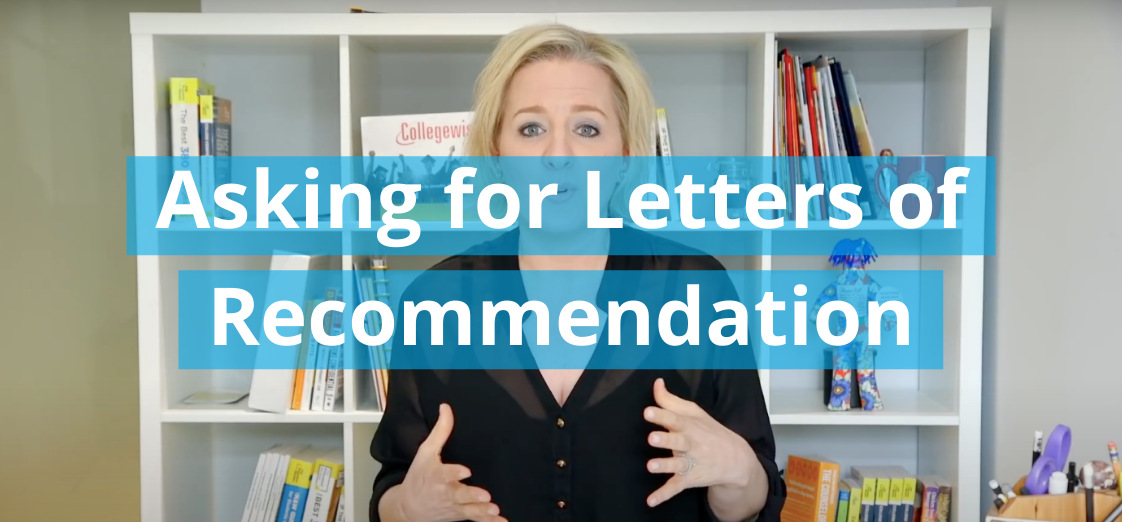Commercials for school supplies are airing, which means summer must be winding down (some people mark summer’s end with Labor Day; for me, it’s official when I see my first Target backpack ad). While final plans are still being ironed out in some areas, we know that school—at a minimum—will look different this fall. And extracurriculars will look different, too. Social distancing, limits on crowd sizes, and shrinking budgets all may affect your ability to participate in organized activities. But that doesn’t mean you should sit back and do nothing. With a little bit of creativity, you can still engage with the things you love. As an added bonus, you’ll get to share this information with colleges, too.
First, a little context. Why do colleges care about your extracurriculars? It all goes back to the idea of holistic admissions. Colleges genuinely want to understand who you are and what role you’d play on campus. One way they get a window into this is by seeing how you spend your time outside of the classroom. And, notice that I didn’t say “in clubs and sports.” Hobbies, jobs, family responsibilities—all of these count as “activities.” If you’re investing meaningful time in something, it’s an activity. Don’t limit yourself to things you do through school or organizations.
That’s why applications include an activity section—not because colleges are looking to assemble a freshman class made only of club presidents, but because they want to see what motivates you, what type of impact you make when you’re involved with something, and what you’re passionate about. You’ll probably have the chance to write about these passions in your supplemental essays, too. But remember that colleges are generally less concerned with what you’re passionate about than the fact that you’re passionate about something.
But wait. Do colleges expect me to focus on activities when we’re still in the midst of a pandemic? It depends. Remember that admissions officers are people, too (really!). They’re being open about their priorities, and they want you to focus first on your health, safety, and well-being (MIT does a great job laying this out in their FAQ about activities in the time of COVID).
However, if the essentials are taken care of and you’re able to devote time to activities, then yes, you should do so. It shows your ability to be creative and flexible, and to persevere even in unusual times. And more importantly, it gives you the chance to spend time on something you really enjoy. This is key from both a human and college admissions perspective.
How do I pivot if my activities have been changed or altered? Just because meetings, clubs or competitions won’t happen the way they did last year doesn’t mean you can’t showcase your interests. Some examples of what pivoting could look like for different activities:
- Not able to take courses at your local art league? Select a medium you’re not familiar with—let’s say digital photography. Next, decide what you’d like to focus on. General photography? Portraiture? Microphotography? You can learn the basics from YouTube or by taking online classes. Then, practice your technique with the goal of building a small portfolio so ysou can look back on your progress.
- Model Congress competitions got postponed? Spend that time digging into political issues you care about—you’ll not only be scratching that political itch, you’ll also be doing the legwork for future bill-writing. In fact, go ahead and draft a bill. You know you’ll use it later! Pledge to get some real-world experience, too—volunteer with a campaign, NGO, or mission-based organization that you care about (check out VolunteerMatch’s political opportunities or UN volunteers for some ideas).
- Is your Italian getting rusty because your language club is on hiatus? Look for alternative ways to practice. Set up a weekly time for club members to chat online while eating Italian pastries. Sign up for one-on-one online lessons with native Italian speakers (italki.com is is a great, inexpensive source for language teachers). Practice your Italian on your dog. Set a goal of carrying on a short conversation, and practice until you get there.
- And, for any of your interests, lean into the community you have at home. If you love history, interview relatives to create a family record. Keep fit by organizing a family Olympics. Involve them in your passions!
Notice that while the format/venue has changed in these examples, they all have two things in common: 1) they tie back to the student’s original interest, and 2) they include a goal. That’s key to making them meaningful experiences, especially if you’ve gone from an organized activity to something you need to structure yourself. When so many of us have lost the concept of time and it can be difficult to motivate, goals will help keep you going.
So when you’re coming up with your ideas, think back to why you originally signed up and what, specifically, you liked about or hoped to get from it. Use that as inspiration. Once you’ve brainstormed alternative ways to fulfill your interest, set a concrete goal for yourself. “Learn to play guitar” leaves too much open to interpretation (does learning one chord count?), so it can be easy to cop out. Try this instead: “By the end of the fall, learn to play Come Together” (good choice, by the way). That specificity gives you a solid framework for making progress.
I play sports and my season got canceled. How do I pivot? While you can’t replicate an entire competition schedule on your own, you can continue your training. You may need to adapt your regular routine (get inspired by Olympians training in a backyard pool), but you still can keep yourself in shape and ready to return when your sport does.
Also consider using this time to focus on the smaller things that you don’t usually have time for—maybe building specific skills or doing drills that you usually neglect. Invite your family or other people you’re isolating with to join your workouts, too. It’ll be more fun, and it’s easier to keep each other accountable when you’re doing it as a group.
If you’re hoping to be recruited, think about compiling your highlight reel. Build out a YouTube channel that shows your moves or workouts. And if you’re interested in learning more about how the recruiting process has changed, check out this report on Recruiting during Corona from NCSA.
Parting thoughts. While this clearly isn’t the way most of us expected to be following our passions this year, the Corona era is forcing us to adapt, change, and be agile. All good for finding creative ways to pursue your interests—and relevant far beyond that, too.
About Us: With more than twenty years of experience, Collegewise counselors and tutors are at the forefront of the ever-evolving admissions landscape. Our work has always centered on you: the student. And just like we’ve always done, we look for ways for you to be your best self - whether it’s in the classroom, in your applications or in the right-fit college environment. Our range of tools include counseling, test prep, academic tutoring, and essay management, all with the support of our proprietary platform, leading to a 4x higher than average admissions rates.



.png?width=600&height=200&name=Blog%20CTAs%20(7).png)



